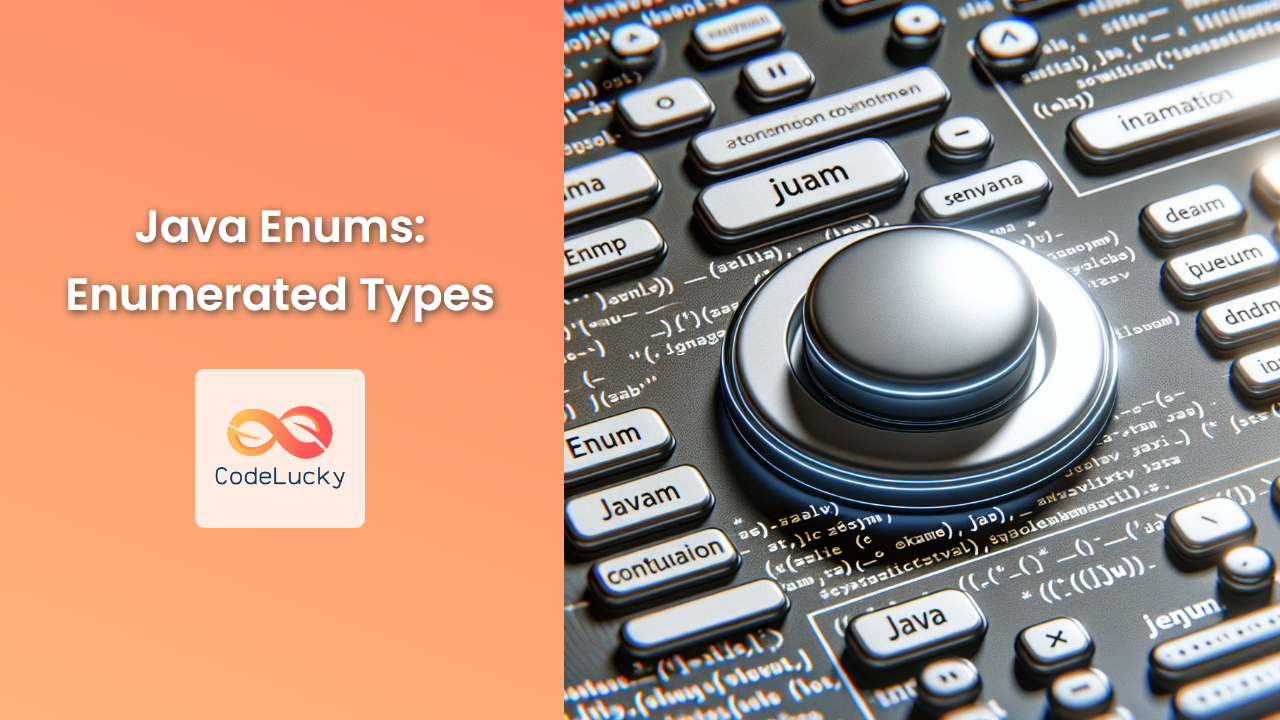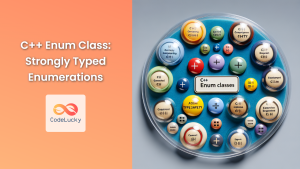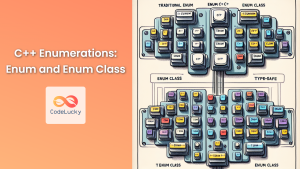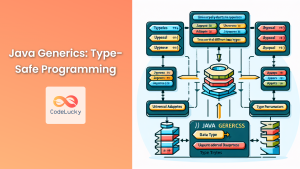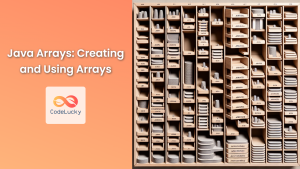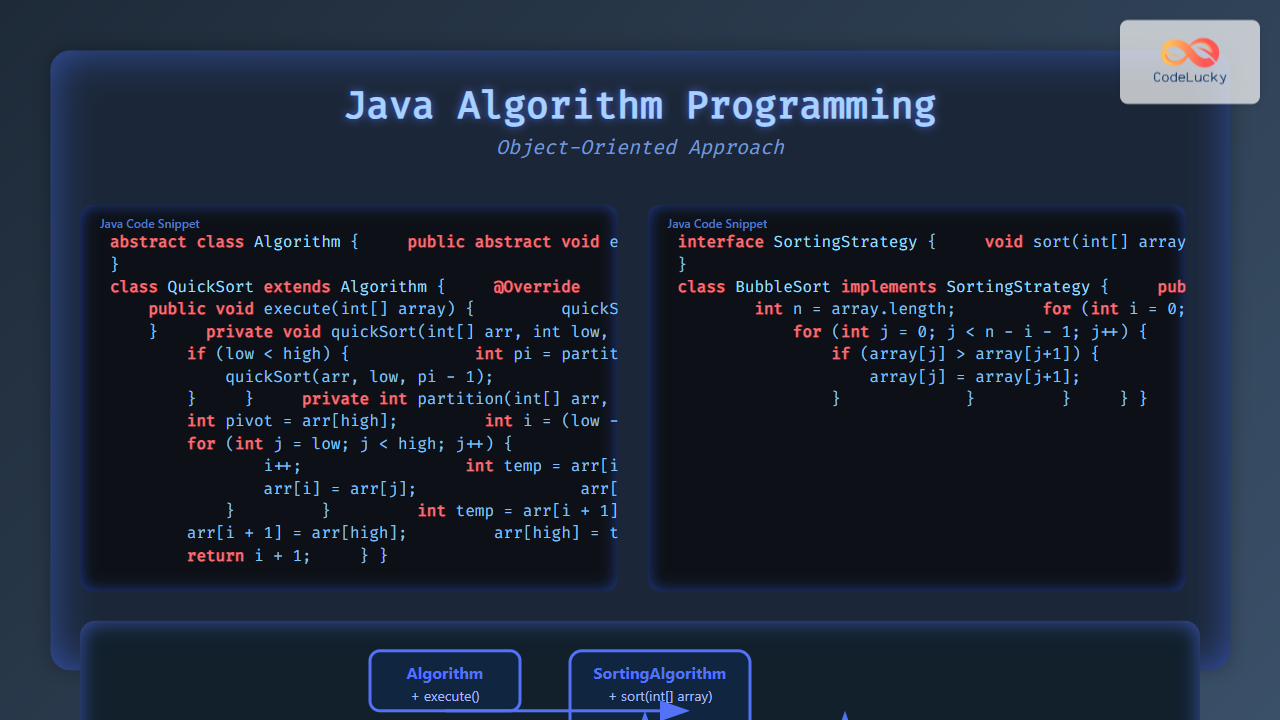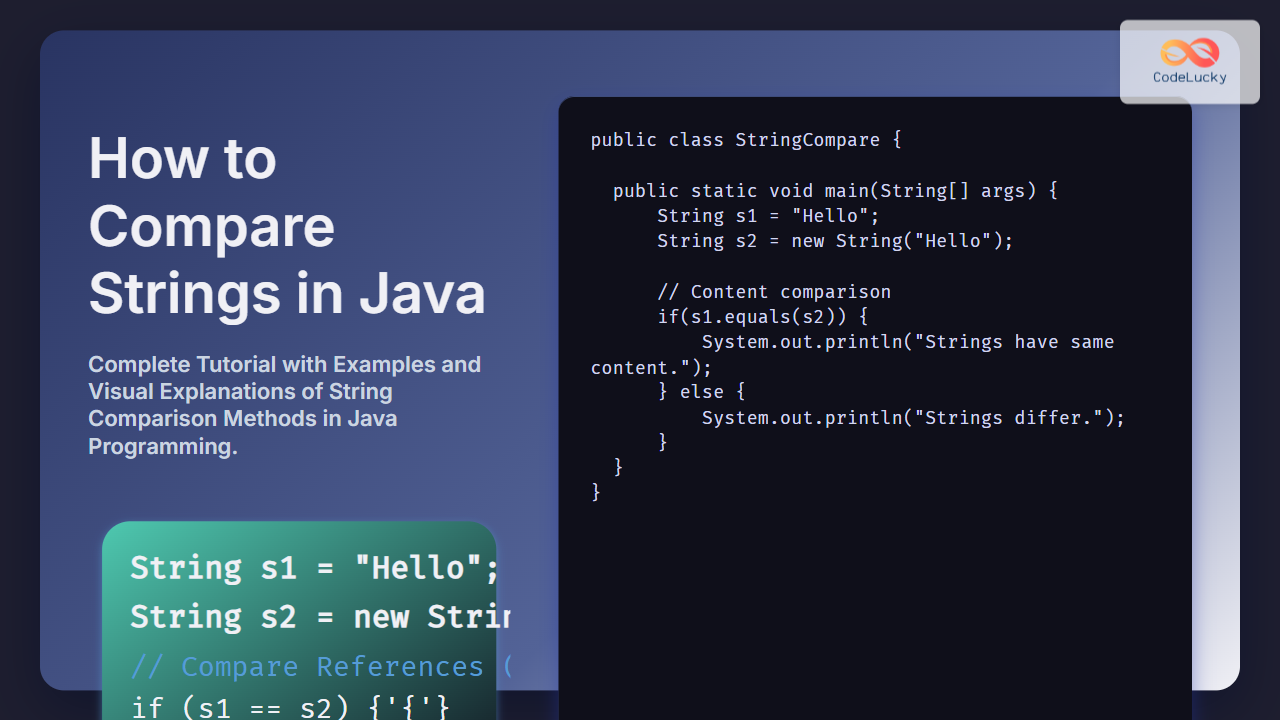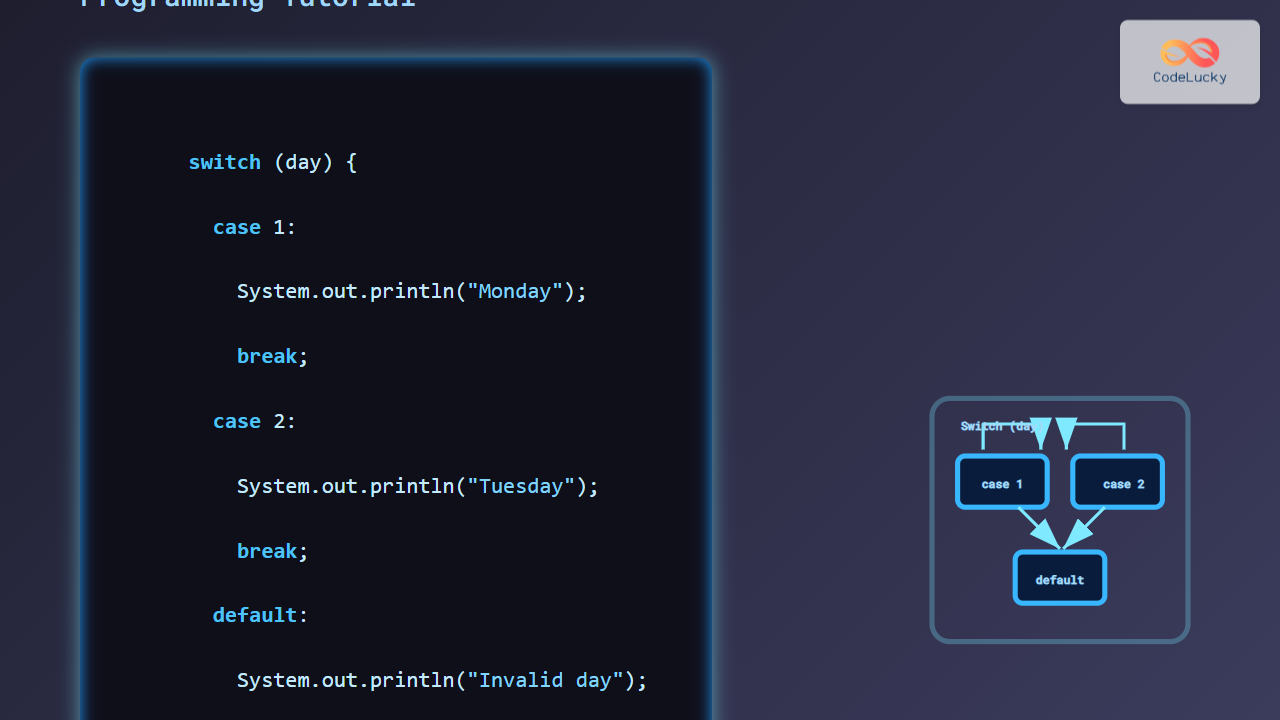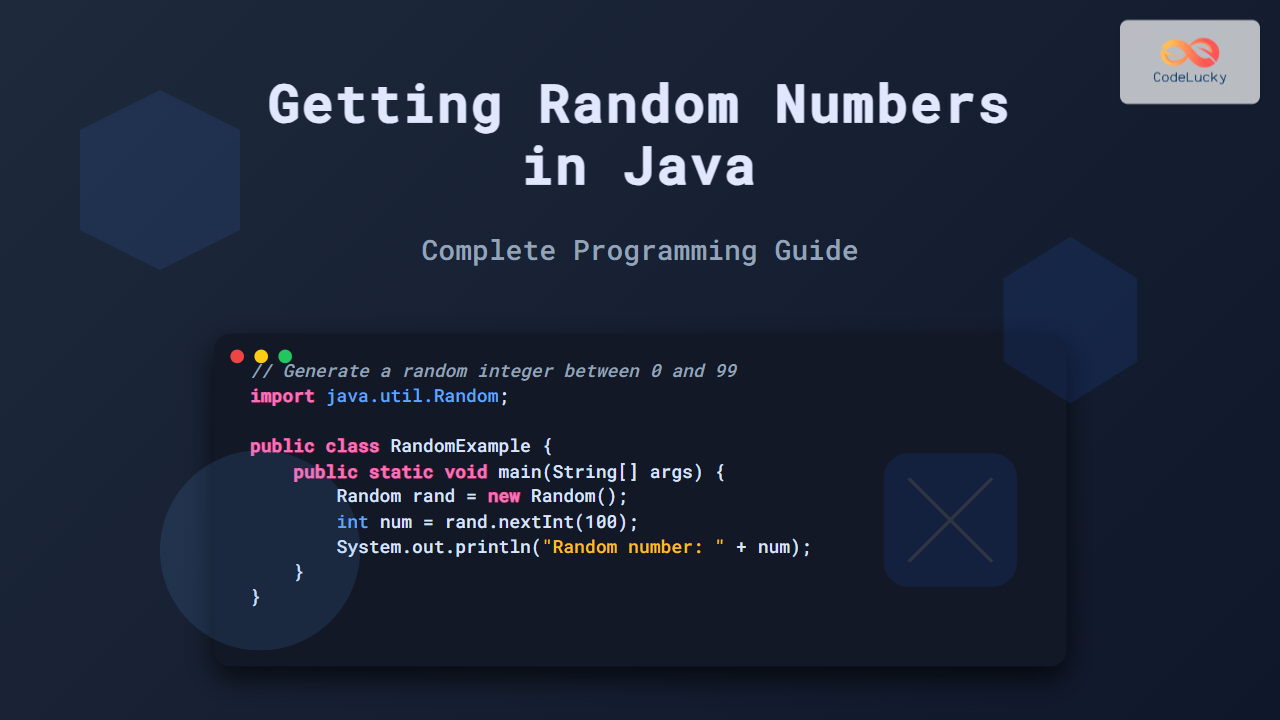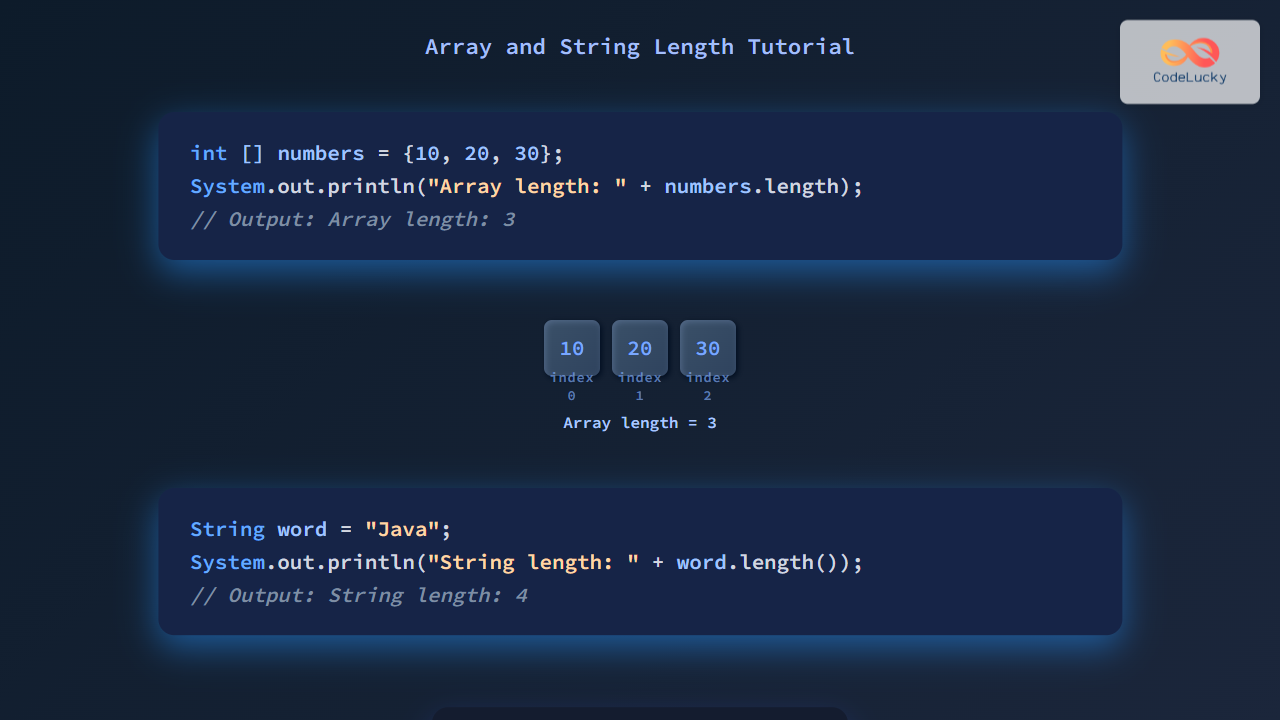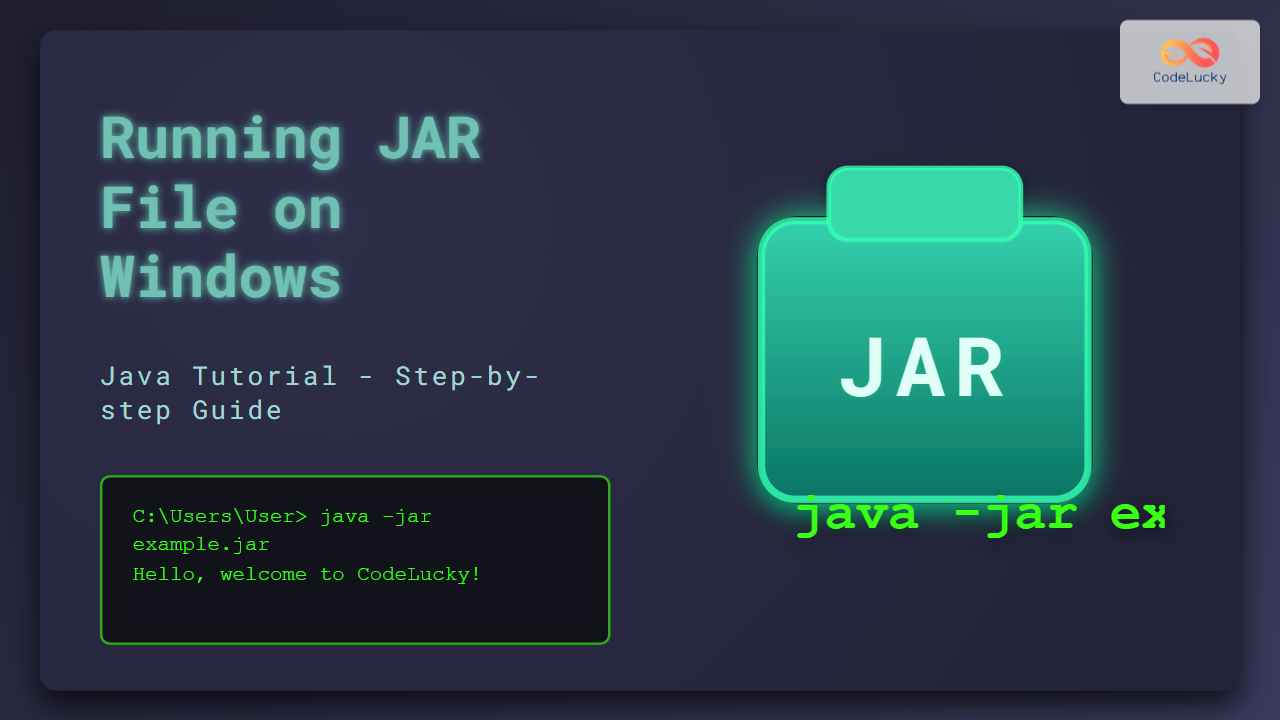Java enums, short for enumerated types, are a powerful feature introduced in Java 5 that allows developers to define a fixed set of constants. Enums provide a way to represent a group of related values as distinct types, enhancing type safety and readability in your code. In this comprehensive guide, we'll explore Java enums in depth, covering their syntax, usage, and advanced features.
Understanding Java Enums
Enums in Java are essentially special classes that represent a fixed set of constants. They are particularly useful when you have a collection of related values that you know won't change, such as days of the week, card suits, or planet names.
Let's start with a simple example:
public enum DaysOfWeek {
MONDAY, TUESDAY, WEDNESDAY, THURSDAY, FRIDAY, SATURDAY, SUNDAY
}
In this example, DaysOfWeek is an enum that represents the seven days of the week. Each day is a constant instance of the DaysOfWeek enum.
Declaring and Using Enums
To use an enum, you can declare a variable of the enum type and assign it one of the predefined constants:
DaysOfWeek today = DaysOfWeek.WEDNESDAY;
System.out.println("Today is " + today);
Output:
Today is WEDNESDAY
🔑 Key Point: Enum constants are implicitly public, static, and final.
Enums in Switch Statements
One of the most common uses of enums is in switch statements. Enums make switch statements more readable and less error-prone:
DaysOfWeek day = DaysOfWeek.FRIDAY;
switch (day) {
case MONDAY:
System.out.println("Start of the work week");
break;
case FRIDAY:
System.out.println("TGIF!");
break;
case SATURDAY:
case SUNDAY:
System.out.println("Weekend!");
break;
default:
System.out.println("Midweek");
}
Output:
TGIF!
Enum Methods
Java enums come with some built-in methods that can be very useful:
values(): Returns an array containing all of the enum constants.valueOf(String name): Returns the enum constant with the specified name.ordinal(): Returns the ordinal of this enumeration constant (its position in the enum declaration, where the initial constant is assigned an ordinal of zero).name(): Returns the name of this enum constant, exactly as declared in its enum declaration.
Let's see these methods in action:
// Using values()
for (DaysOfWeek day : DaysOfWeek.values()) {
System.out.println(day);
}
// Using valueOf()
DaysOfWeek tue = DaysOfWeek.valueOf("TUESDAY");
System.out.println("tue: " + tue);
// Using ordinal() and name()
System.out.println(DaysOfWeek.FRIDAY.ordinal()); // 4
System.out.println(DaysOfWeek.FRIDAY.name()); // "FRIDAY"
Output:
MONDAY
TUESDAY
WEDNESDAY
THURSDAY
FRIDAY
SATURDAY
SUNDAY
tue: TUESDAY
4
FRIDAY
Adding Fields and Methods to Enums
Enums can be more powerful than simple constants. You can add fields, methods, and even a constructor to your enum:
public enum Planet {
MERCURY(3.303e+23, 2.4397e6),
VENUS (4.869e+24, 6.0518e6),
EARTH (5.976e+24, 6.37814e6),
MARS (6.421e+23, 3.3972e6),
JUPITER(1.9e+27, 7.1492e7),
SATURN (5.688e+26, 6.0268e7),
URANUS (8.686e+25, 2.5559e7),
NEPTUNE(1.024e+26, 2.4746e7);
private final double mass; // in kilograms
private final double radius; // in meters
Planet(double mass, double radius) {
this.mass = mass;
this.radius = radius;
}
public double getMass() {
return mass;
}
public double getRadius() {
return radius;
}
public double surfaceGravity() {
double G = 6.67300E-11;
return G * mass / (radius * radius);
}
}
Now you can use these methods:
Planet earth = Planet.EARTH;
System.out.printf("Earth's mass is %.2e kg%n", earth.getMass());
System.out.printf("Earth's radius is %.2e m%n", earth.getRadius());
System.out.printf("Earth's surface gravity is %.2f m/s^2%n", earth.surfaceGravity());
Output:
Earth's mass is 5.98e+24 kg
Earth's radius is 6.38e+06 m
Earth's surface gravity is 9.80 m/s^2
🌟 Pro Tip: Adding fields and methods to enums allows you to associate data and behavior with each enum constant, making them much more versatile than simple constants.
Implementing Interfaces with Enums
Enums can implement interfaces, which allows for even more flexibility:
public interface Describable {
String getDescription();
}
public enum Season implements Describable {
SPRING("Flowers bloom"),
SUMMER("The weather is hot"),
AUTUMN("Leaves change color"),
WINTER("Snow falls");
private final String description;
Season(String description) {
this.description = description;
}
@Override
public String getDescription() {
return description;
}
}
Using the enum:
for (Season season : Season.values()) {
System.out.println(season + ": " + season.getDescription());
}
Output:
SPRING: Flowers bloom
SUMMER: The weather is hot
AUTUMN: Leaves change color
WINTER: Snow falls
EnumSet and EnumMap
Java provides two special collection classes for use with enums: EnumSet and EnumMap.
EnumSet
EnumSet is a specialized Set implementation for use with enum types. It's much faster than HashSet when working with enums:
EnumSet<DaysOfWeek> weekend = EnumSet.of(DaysOfWeek.SATURDAY, DaysOfWeek.SUNDAY);
System.out.println("Weekend days: " + weekend);
EnumSet<DaysOfWeek> workdays = EnumSet.complementOf(weekend);
System.out.println("Work days: " + workdays);
Output:
Weekend days: [SATURDAY, SUNDAY]
Work days: [MONDAY, TUESDAY, WEDNESDAY, THURSDAY, FRIDAY]
EnumMap
EnumMap is a specialized Map implementation for use with enum types as keys:
EnumMap<DaysOfWeek, String> scheduleMap = new EnumMap<>(DaysOfWeek.class);
scheduleMap.put(DaysOfWeek.MONDAY, "Start the week");
scheduleMap.put(DaysOfWeek.WEDNESDAY, "Midweek meeting");
scheduleMap.put(DaysOfWeek.FRIDAY, "TGIF party");
for (Map.Entry<DaysOfWeek, String> entry : scheduleMap.entrySet()) {
System.out.println(entry.getKey() + ": " + entry.getValue());
}
Output:
MONDAY: Start the week
WEDNESDAY: Midweek meeting
FRIDAY: TGIF party
Best Practices for Using Enums
-
🎯 Use enums for fixed sets of constants: If you have a fixed set of related constants, an enum is often the best choice.
-
🔒 Prefer enums to int constants: Enums are type-safe and provide better readability.
-
📚 Use EnumSet instead of bit fields: EnumSet is more efficient and easier to use than traditional bit fields.
-
🗺️ Use EnumMap instead of ordinal indexing: EnumMap is specifically designed for enum keys and is usually more efficient.
-
🏗️ Consider using a single-element enum to implement singletons: This approach provides an easy way to implement the Singleton pattern.
Conclusion
Java enums are a powerful feature that goes beyond simple constants. They provide type safety, can include fields and methods, and can even implement interfaces. By using enums effectively, you can write more readable, maintainable, and robust code.
From representing simple sets of related constants to implementing complex behavior, enums offer a versatile tool in the Java developer's toolkit. As you continue to work with Java, you'll find that enums can simplify your code and make it more expressive in many situations.
Remember, the key to mastering enums is practice. Try incorporating them into your projects, and you'll soon discover their full potential in enhancing your Java programming skills.

